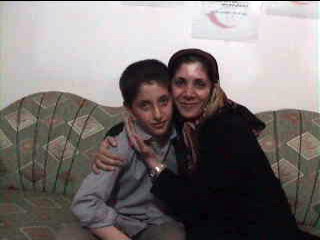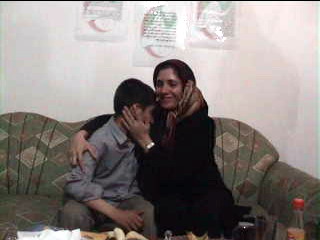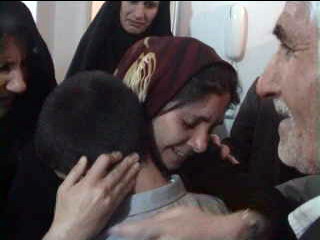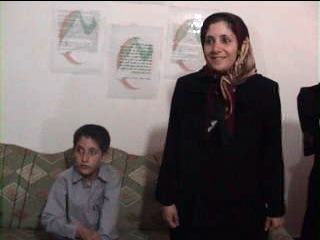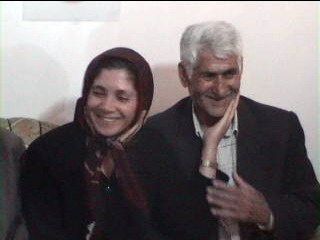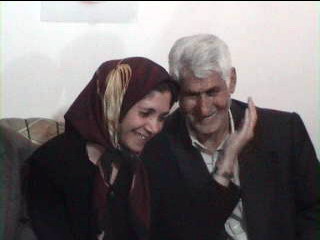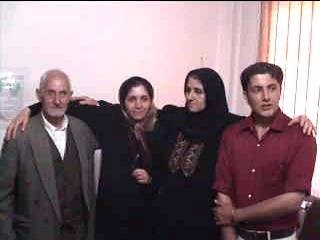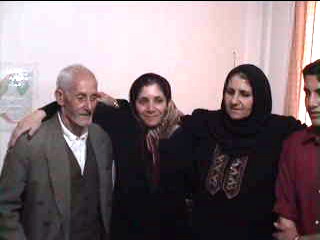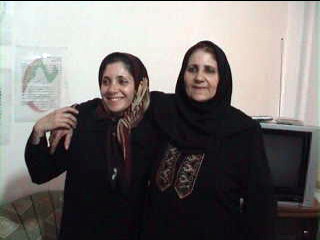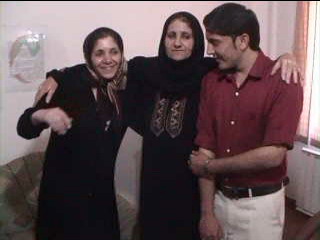MKO former members
Arash Sametipour could easily live a comfortable life in his city Burke, Virginia to where his parents immigrated after the Islamic Revolution. Born in 1975 in Tehran, he committed the biggest mistake of his whole life in the late 1990’s. He fell in love with an Iranian –American woman who tempted him to join Mujahedin-e-Khalq finally.
Mujahedin-e-Khalq at that time was considered a military force backed by Saddam Hussein trying to overthrow the Islamic regime of Iran. In 1999 Mujahedin sent him to Camp Ashraf in Iraq located in a hundred Kilometers from Iranian border. He was supposed to attempt upon a high ranking officer’s life.
"My mission to assassinate that official failed" said Sametipour in his office named Nejat Society." This is an NGO of which the objective is to return the Mujahedin members to Iranian community"
He speaks of his mission so as it was an ordinary mission. The failure in the mission made him swallow a cyanide capsule but the poison didn’t work so he tried to suicide with a grenade. He lost his right hand and was transferred to a military hospital and could survive death. Following the recovery, he spent four more years in Evin prison.
He invited, for the interview, another former member of Mujahedin Babak Amin. Babak began his studies at Vienne technical University in 1983 and was trapped by the Muajhedin in 1985. Then he flied to Bagdad by Austrian airlines and was first settled down in a camp in Kurdistan. During the Iran-Iraq war he mostly was fighting the pro-Iranian Kurds. A short time before the ceasefire, Mujahedin’s leader Masud Rajavi decided to change his tactics: as an army, Mujahedin were supposed to set out for an open face to face war against the Iranian forces. After the UN-Resolution 598 was signed in July 1987, Rajavi addressed his group:’’If we don’t attack now we will los our credit and respect."
On July 18th, 1987, a short time before Iran accepted the ceasefire, Mujahedin started to attack. 7000 forces took part in the operation" Eternal Light". The invasion ended with a disaster. At least 1315 people were killed. The organization had no way except engaging in terrorist operations in the Iranian territory. In 2001, armed with a Kalashnikov ,Babak was sent to Tehran in order to operate a terrorist attack. There, he was arrested and sentenced to 10 years in Jail. He was released from the prison in 2005.
Why weren’t they sentenced to death and why Babak and Sametipour were released before finishing their imprisonment period?
During Mohammad Khatami’s presidential period, Iranians’ policy towards Mujahedin changed. The 4000 Mujahedin living in Camp Ashraf could repatriate by declaring their repentance. And the prisoners also enjoyed an amnesty.
A member of the Iranian "Center for strategic studies" who wished to remain anonymous reproach the US for not being willing to close down Mujahedin’s Camp and return the members to Iran. In fact Mujahedin are the political orphans of unsteady history of the Middle East.
After the fall of Saddam Hussein, nobody knows the use of this guerrilla cult. Americans don’t trust them since some of the attempts upon the American civilians’ lives during Shah’s era were committed by the Mujahedin. But some wings in Pentagon consider them a sort of military option against Iran.
But that was this group which in 2002 revealed the Uranium enrichment program in Natanz and heavy water facility in Arak.
The group has always used this information as a reason to declare its importance. The former weapon inspector, Scott Ritter believes that the Israel Secret Service was the source of the information. Israel itself owns nuclear weapons and refuses signing NPT and the group got the information from Israel.
By the way Iraq wants to get rid of the group since they are accused of cooperating with the extremists. Arash Sametipour doesn’t deny that Nejat Society supports Tehran’s interests and petitions the removal of Camp Ashraf but he implies that their humanitarian interest is more important.
Tehran intends to resist the political wing of the organization. Iran protests the EU decision based on removing the group from the list of terrorist groups. Hannes Swoboda, vice-president of social-democrat group in European Union Parliament told the Die Presse: "substantially I am cynical toward the terrorist list. The list prevents the dialogue but removing Mujahedin’s name from the terror list, at the present time, is a kind of wrong political message."
May18th,2007/ Khordad 2nd,1386
Die Presse





